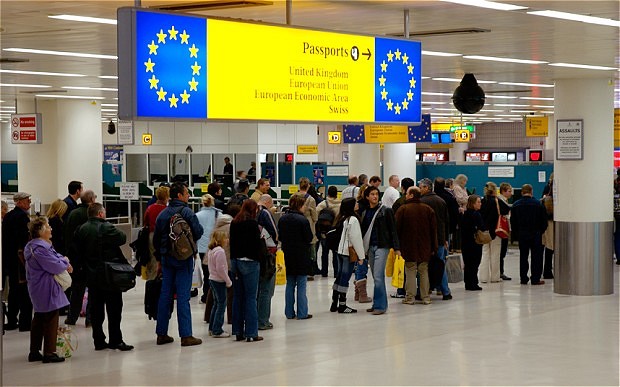On June the 23rd 2016, the British public made the momentous decision to leave The European Union. As a result The Conservative Party has been taking steps, some of which controversial, towards eventually leaving the union by 2019. Their policies concerning migrants in particular, such as severely reducing numbers and forcing companies to publish a list of all their foreign workers, are quite worrying. It is worth remembering now more than ever, that many of claims made by those that want to reduce migration are simply not supported by evidence.
For a start, Amber Rudd’s claims that migrants are “taking jobs British people could have” is nonsense. There is no statistically proven link between migration levels and unemployment in the UK. Migrant workers tend to either be low skilled or high skilled, with most of the native population falling somewhere in between. This results in migrants complementing the native workers, not competing with them. High skilled workers that we have a shortage of such as doctors, engineers and consultants, are absolutely essential for the economy. Lower skilled workers too are great for sectors such as agriculture and hospitality, and without them these essential jobs (that most British workers don’t want to do) may not get done at all, or would at least lead to far more expensive products for consumers.
So they aren’t taking our jobs, but are they a burden for the state? No, quite the opposite in fact. A University College London study found that since the year 2000, the taxes migrants payed in were greater than the public funds they took out. Those from countries that joined the EU in 2004 like Poland and Lithuania payed in almost £5 billion, and those from other EU countries over £15 billion. The same UCL study also found that migrants are 43% less likely to claim benefits than native Brits. Of course many on low pay are entitled to things like housing benefit and child tax credits, but those who do claim are more than made up for by those who work and pay in.
But even if they’re paying taxes, surely they must be overloading our beloved NHS? While it is true that the NHS is under pressure, but you can’t blame immigration alone for causing this, especially when you consider that it relies on thousands of doctors and nurses from both EU countries and elsewhere. Indeed not only are migrants not overstretching healthcare, they are essential to its long term sustainability. The UK has an aging population, at some point we’re all going to get old and we’ll need to be looked after. As we’ve already established, migrants pay more in taxes than they take out, so a steady influx of foreign workers from abroad is a great source of tax revenue to keep these services running in the future. Reducing immigration certainly wouldn’t help our NHS, if anything it would make things much worse.
The economic case for migration is overwhelming, but politically it can be a harder sell. The British public has long been in favour of stricter controls on immigration, and the result on June 23rd certainly reflects this. We live in a democracy, and these people who are concerned should be listened to. Instead of complete freedom of movement with the EU, we could perhaps opt for a slightly tighter work permit system. We can encourage migrants to come to Britain, but prioritise those with impressive qualifications and high skills that would make a great contribution to our country, as well as workers that are desperately needed in areas like agriculture. There is a difference between “taking back control”, and pulling up the drawbridge altogether.
In addition, part of the government’s post-Brexit strategy is to seek trade agreements with other countries around the world, including with Commonwealth countries like Canada, Australia and New Zealand. Why not also do this with migration? Being in the EU has effectively forced us to prioritise European workers at the expense of those from elsewhere, and once we leave this will no longer be the case. We should be welcoming people from India and China just as willingly as we welcome those from Germany or Poland. The Commonwealth in particular would be a great place to start, as the people in these countries share centuries of history and culture with us and are proficient English speakers, so they would fit right in here in Britain.
The Brexit vote has presented us with a crossroads. We can go down the Theresa May path of protectionism, xenophobia and potentially economic disaster. Or we take Brexit as an opportunity to welcome people for both Europe, and from The Commonwealth and elsewhere, growing our economy and having a truly international and open outlook. We should make sure that we choose the later.




